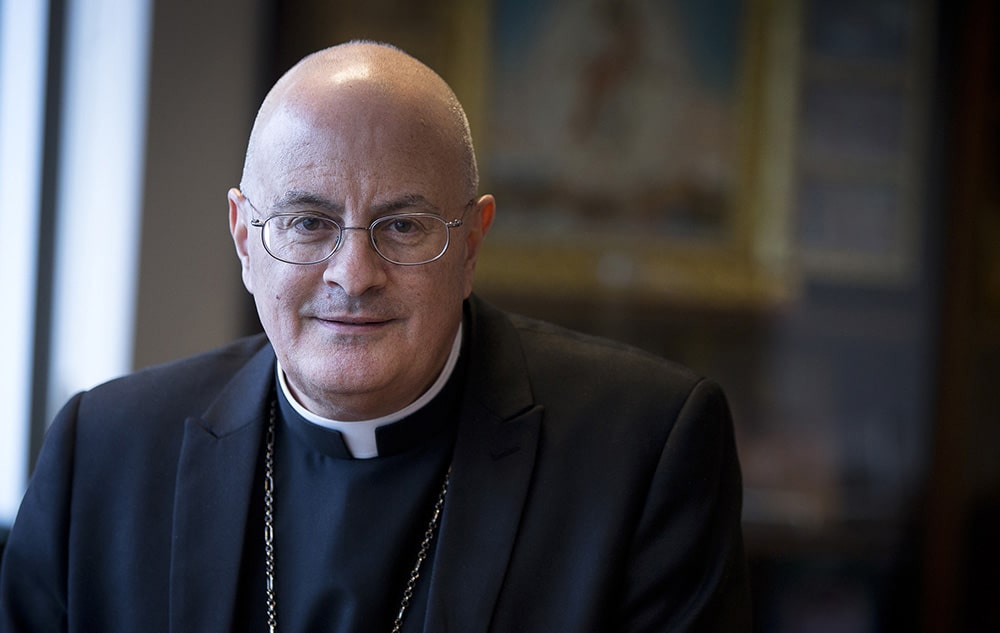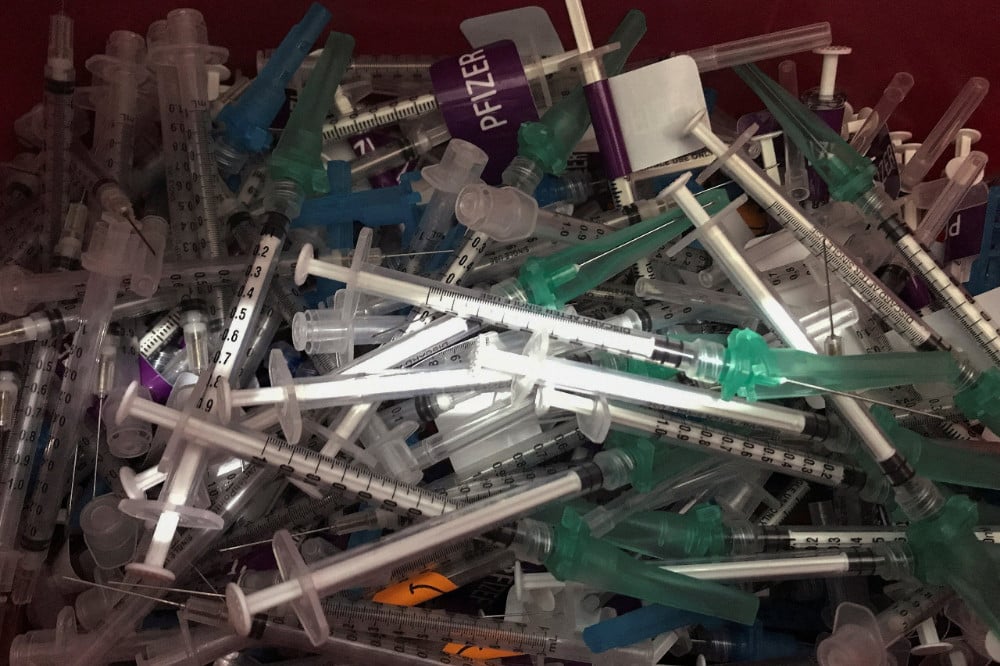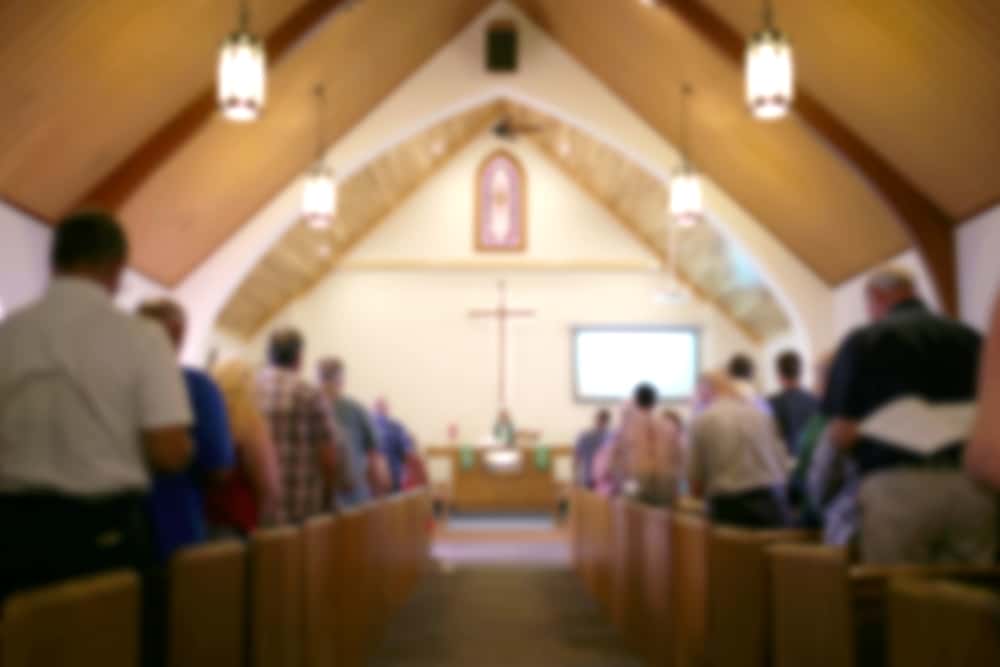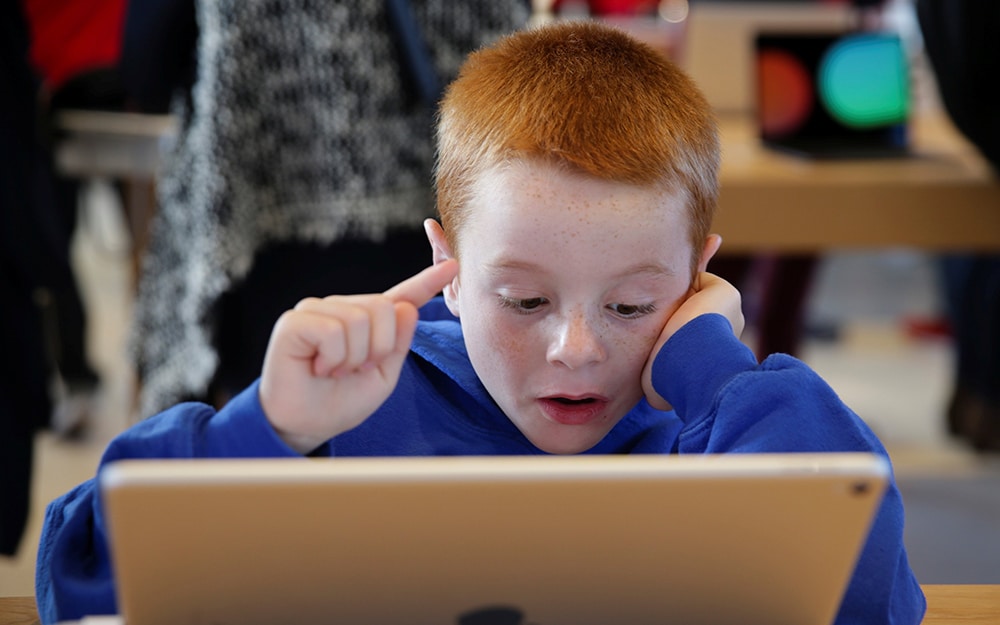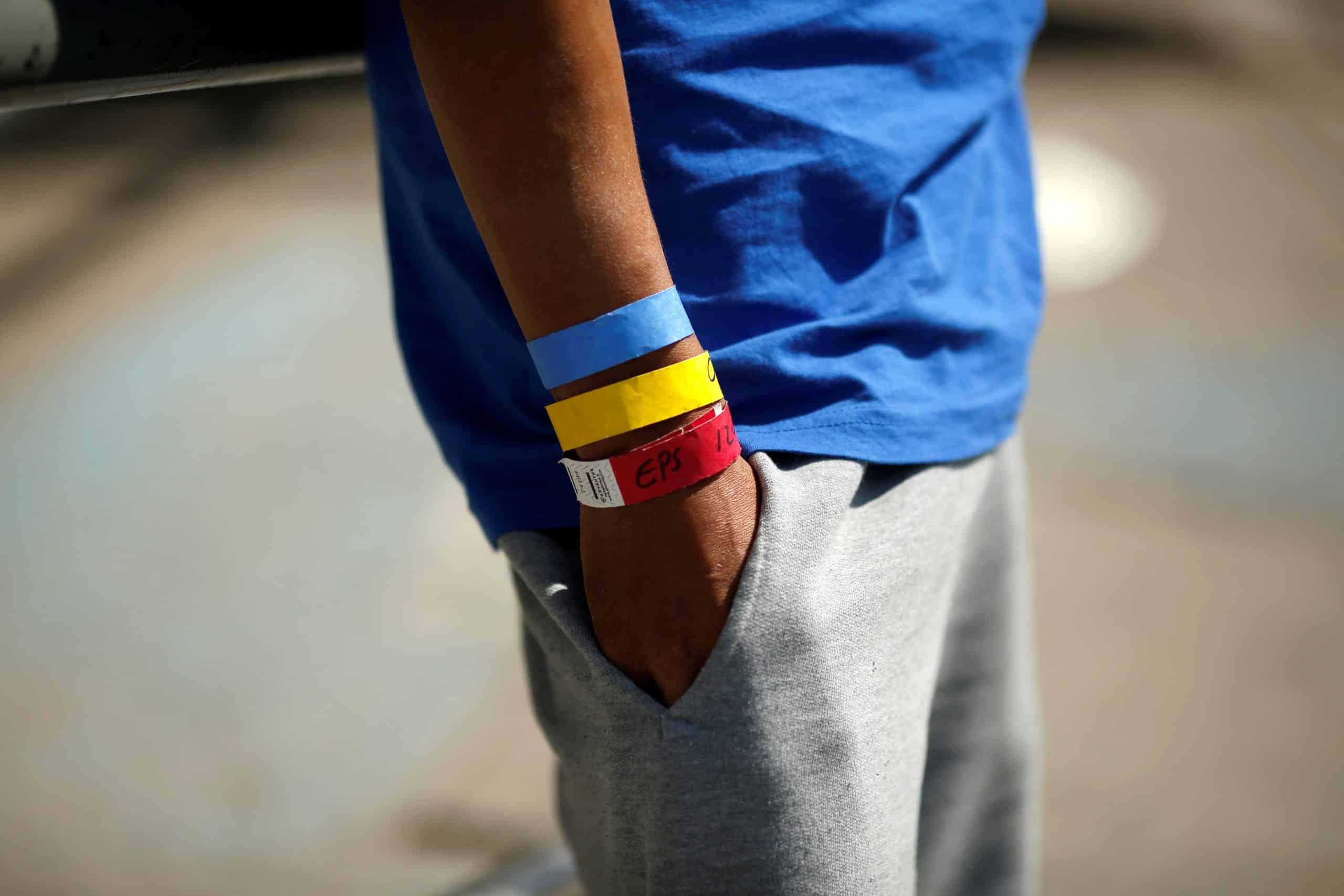Nine weeks after Bishop Gregory Mansour of the Maronite Eparchy of Saint Maron of Brooklyn helped a coughing man up off the street outside his cathedral, he still isn’t entirely himself. Exercising remains a hurdle he has yet to climb. But he no longer has a fever, or a dry cough, or body chills, or the myriad other symptoms that we have all come to recognize as those of COVID-19, the dreaded disease that has caused the death of hundreds of thousands around the world.
While he never got tested for the coronavirus, Bishop Mansour took steps to isolate himself to protect others when he became ill. Quarantined in the cathedral rectory, it was “just me and the angels and the saints” while he battled his illness, he said.
Looking back on that time in a recent interview with Our Sunday Visitor, Bishop Mansour said the weeks of sickness and recovery offered “a graced moment” of reflection for him, where he slowed down, prayed, focused on what is important in life and asked God’s forgiveness for anything he has done.
“What helped me greatly,” he said, “was Pope Francis’ urbi et orbi” — an extraordinary blessing and address to the city and to the world that the pope gave March 27 from a rainswept and lonely St. Peter’s Square.
“I felt that he was really reaching out to the world and saying, ‘Let’s all prepare ourselves; let’s do a little bit better in this dress rehearsal on earth; let’s not take things for granted; and let’s prepare ourselves for the next world,” Bishop Mansour said.
‘It’s OK, I’m a priest.’
It was mid-March when Bishop Mansour, who was on his way to run an errand near the cathedral, noticed a man who had fallen down on the sidewalk and was unable to stand back up on his own. “His arms were going, his legs were going, almost spastic,” he said. He was coughing uncontrollably.
As the bishop approached the man to offer assistance, he noticed a group of bystanders maybe 20 or 30 feet away. Someone shouted a warning: Stay away — the man could have coronavirus.
“I said, ‘It’s OK, I’m a priest,'” he said.
Bishop Mansour found a chair in a pile of junk nearby and helped the man into it. The bystanders had called an ambulance, and the bishop waited with the man until it arrived. Then he left.
“I didn’t think anything else of it until the following week,” he said.
Helping a struggling man sit on a chair wouldn’t typically be viewed as a heroic act. But these are atypical times, when being fewer than 6 feet away from any other individual — much less one who is visibly ill — is seen as risky.
Still, Bishop Mansour insists there was nothing heroic about his actions.
“It was a natural thing,” he said, “just a normal response.”
Instead of accepting praise, he deflected attention to the health care professionals and emergency workers who encounter the disease on its front lines every day.
“I wish I was one-tenth of what our medical personnel or our EMTs are,” he said.
To this day, Bishop Mansour doesn’t know who the man was or what happened to him. But the effects of his encounter were great, indeed.
Prayer and suffering
Two things helped Bishop Mansour through his weekslong ordeal: the Rosary, to which he already had a great devotion, and the teaching of Venerable Fulton Sheen, the well-known evangelist who died in 1979. The Rosary, Bishop Mansour said, is the “most grounding, the most contemplative, the most healing prayer,” and he prayed it incessantly while ill. He also pondered Sheen’s reflections on the meaning of suffering.
“He used to say to people, ‘We should practice for suffering,'” Bishop Mansour said. “In other words, our small sufferings can help prepare us for if we have to go through a big suffering. He said we should practice for it so we can suffer well. He said the same thing about death: The small sacrifices we make, the small inconveniences we bear, and the forgiveness of others — because we don’t take that with us when we die — help prepare us for death.”
Bishop Mansour might not think of himself as a hero, but it’s clear that others have. Hesitant to make a fuss, he didn’t share the news about his illness with anyone until he really had to — that is, until the Tuesday of Holy Week, when he was expected to celebrate livestreamed liturgies.
Knowing that celebration of Mass would be impossible in his current state, he sent out a letter informing his inner circle that he’d had the symptoms of COVID-19, and that he will continue distancing himself from others. Suddenly, his quiet convalescence was over. He received letters, emails, phone calls, texts — even correspondence from the Maronite patriarch in Lebanon.
“I was just trying to continue being quiet!” he laughed. “For the next few days, that’s all I was doing: returning phone calls, and texts and emails.”
On the shutdown and ‘opening back up’
As many dioceses begin the monumental task of reopening parishes for public worship this month, Bishop Mansour is recommending that his priests, who are located all over the country, should try to keep churches open and to hold public liturgies with safe social distancing. If these options aren’t possible, he’s advising them to celebrate a private Mass, livestreamed, if possible.
“All we can do is do our best,” he said.
At the same time, he acknowledged that, for many people, the bishops’ “best” hasn’t been thought to be good enough — especially when it came to the controversial decision to suspend public Masses for several weeks in all dioceses in the continental United States.
“Everybody’s got an opinion, and everybody’s convinced that their opinion is right,” Bishop Mansour said. But “I think those were wise decisions. I disagree with those people who say, ‘Oh, Satan forced us to close these churches.’ I have a great respect for the bishops of the United States. They have made hard decisions, and I agree with them.”
He hopes and prays that a learned lesson from this time of pandemic is “that we are a little bit more humble before God and before man” — a lesson, he said, from which he himself has benefited.
With most U.S. dioceses on the way to reopening for public Mass, the safe reception of Communion becomes a sticking point. Maronite tradition offers holy Communion through intinction, or the dipping of the host into the precious blood, before placing it on the recipient’s tongue. Though he was hesitant to make any changes at first to the process, further reflection and feedback steered him into making changes based on people’s level of comfort.
“I told the priests: You decide how you want to give,” he said. “If someone comes and wants to receive on the hand, give them without the intinction on the hand. The body of Christ is the entire body: body, blood, soul and divinity. So if the person receives on the hand, or if they receive by intinction on the tongue, they still receive Christ himself.”
In addition, he instructed his priests to give a blessing if the person chooses not to receive physically but instead chooses to make a spiritual communion.
No regrets
In a time when so many people are fearing catching COVID-19, Bishop Mansour said he is better off for having dealt with it.
“I do not regret one minute of it,” Bishop Mansour said. “I don’t regret the suffering; I don’t regret the difficulties in it. It has really made me, I think, a better person, and a person more in tune with others and more at peace with myself and my relationship with God.”
Throughout, he tried to do what Fulton Sheen suggested: practice for suffering.
“I saw this as a small suffering, and the nuns used to tell us to offer it up, so I did,” he said. “I offered it up for any intention that I had or any person that I knew.”
And he relied on God.
“I don’t know what I would have done without the Rosary, without the Faith,” he said. “That’s why it’s such a grace to be close to God, close to the Church.”
Gretchen R. Crowe is editorial director for periodicals at OSV. Follow her on Twitter @GretchenOSV.

